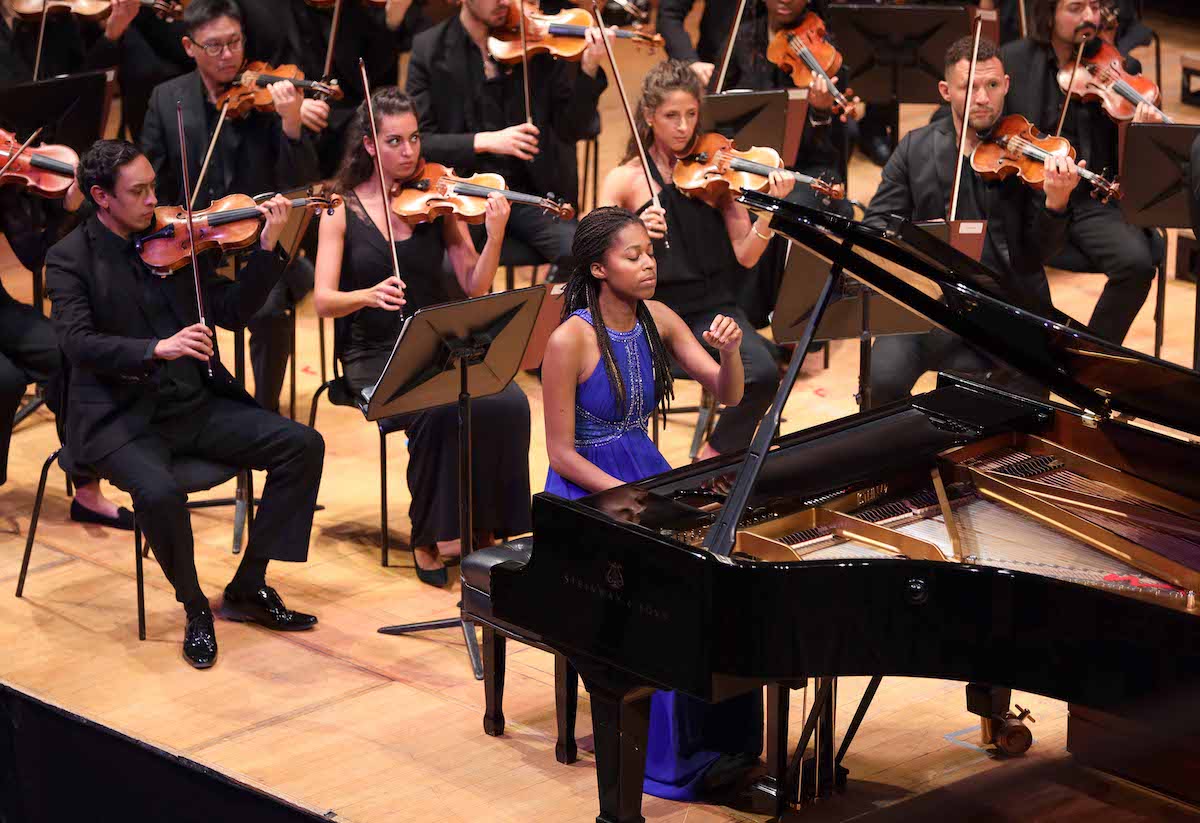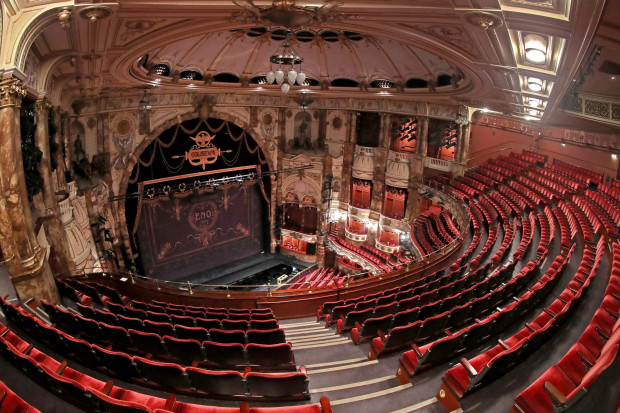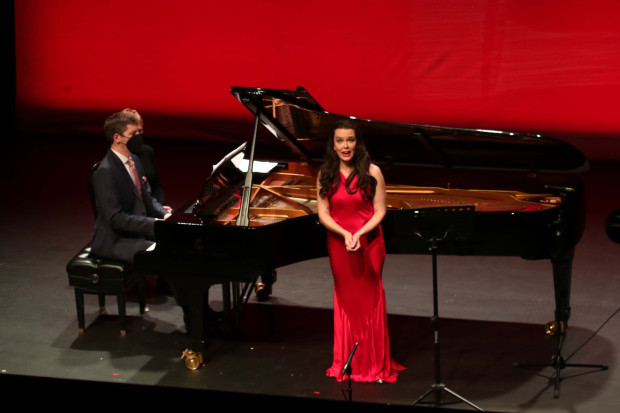
Jeneba Kanneh-Mason performing with the Chineke! Orchestra at the NCH (Photo: Mark Stedman)
A Joyous Debut
The Chineke! Orchestra is the flagship ensemble of the Chineke! Foundation set up in 2015 by double bass player Chi-chi Nwanoku in order to provide career opportunities for Black and ethnically diverse classical musicians in the UK and Europe. Last Sunday evening (13 November) they made their debut at the National Concert Hall in Dublin with the occasion being a very special one for Nwanoku, who is of Irish-Nigerian heritage, her mother having originally hailed from Limerick. Nwanoku remarked on the significance of her own return to Ireland after her mother left these shores 70 years ago in search of a better life.
The first item on the programme was Samuel Coleridge-Taylor’s Ballade for Orchestra in A minor. The piece contained some colourful writing for the woodwind and brass but the highlight was the attractive main melody scored with big Tchaikovsky-style doublings across the violins and violas. The Chineke! carried this off wonderfully with a full-bodied, lush sound from the strings while maintaining a good balance throughout.
Lyric for Strings by George Walker, the first Black composer to win the Pulitzer Prize, is by any estimation a beautiful piece of music. Although it recalls the string writing of Barber’s famous Adagio with long held notes in some parts and weaving crotchet lines in others, the tone is less tragic and more on the elegiac side of things. Again the Chineke! strings were superb, achieving a luminous, radiant sound that managed to remain full even when playing pianissimo.
Kanneh-Mason plays Florence Price
Despite its title, Florence Price’s Piano Concerto in One Movement is really a concerto in three distinct ‘movements’, with each section played right through without any breaks between them. The first movement was probably the least interesting being dominated by unremarkable, virtuosic piano gestures in a Rachmaninoff vein – executed with aplomb by soloist Jeneba Kanneh-Mason – and the development of a motive based on the same intervals as the opening of Dvořák’s Symphony No. 9. The slow ‘movement’ was more distinctive with light bluesy touches in the piano and orchestral parts that gave it an American pastoral character. However, it was the final movement, based on the Juba – a rag-like dance form once popular in the slave plantations of the Deep South – that was the real highlight, not necessarily because it was based on an African-American idiom itself but because it provoked a much more imaginative interaction between the piano and orchestra than the generic Romanticism of the first movement.
The second half of the concert featured a performance of Dvořák’s Symphony No. 9 ‘From the New World’, which fitted nicely into the programme in both style and spirit. Again the orchestra’s balance and sense of line was outstanding throughout and marked with a particularly punchy, bright attack in the stormy first movement. The strings managed to achieve a translucent sonority in the second moment providing the backdrop for the famous cor anglais theme that was excellently rendered.
The overall impression of the Chineke! Orchestra’s playing was of an ensemble completely in sync with each other not just in terms of the actual notes but also artistically. In some ways this was to be expected for an orchestra on a European tour where the same programme will be performed in each concert. Nevertheless, their playing under the baton of Leslie Suganandarajah had a freshness and sense of joy that was very well-received. At the finish, the NCH audience duly rose to their feet to demand an encore that was provided in the form of Coleridge-Taylor’s charming ‘Danse Nègre’ from his African Suite, which concluded a very special evening.
For more on the Chineke! Orchestra, visit www.chineke.org.
Subscribe to our newsletter.
Published on 17 November 2022
Adrian Smith is Lecturer in Musicology at TU Dublin Conservatoire.











